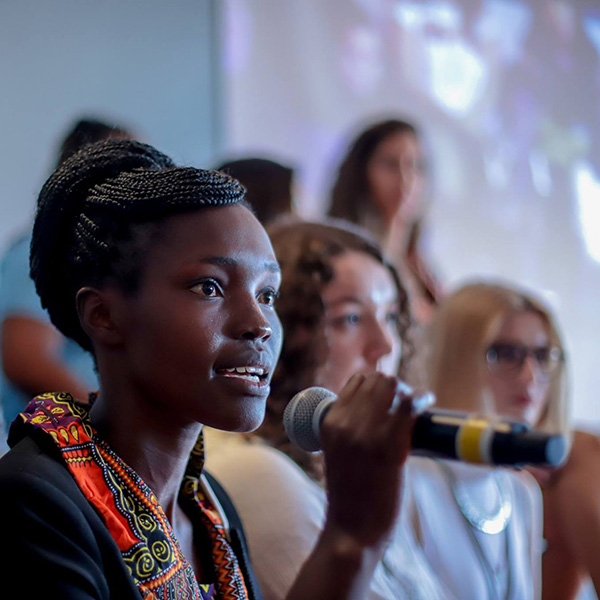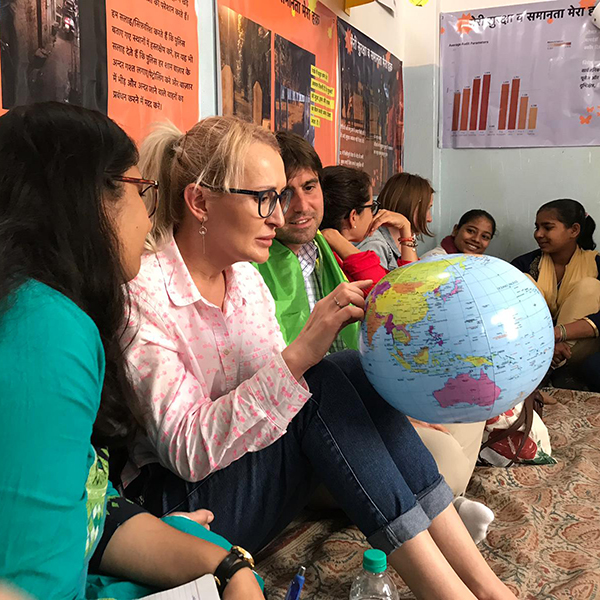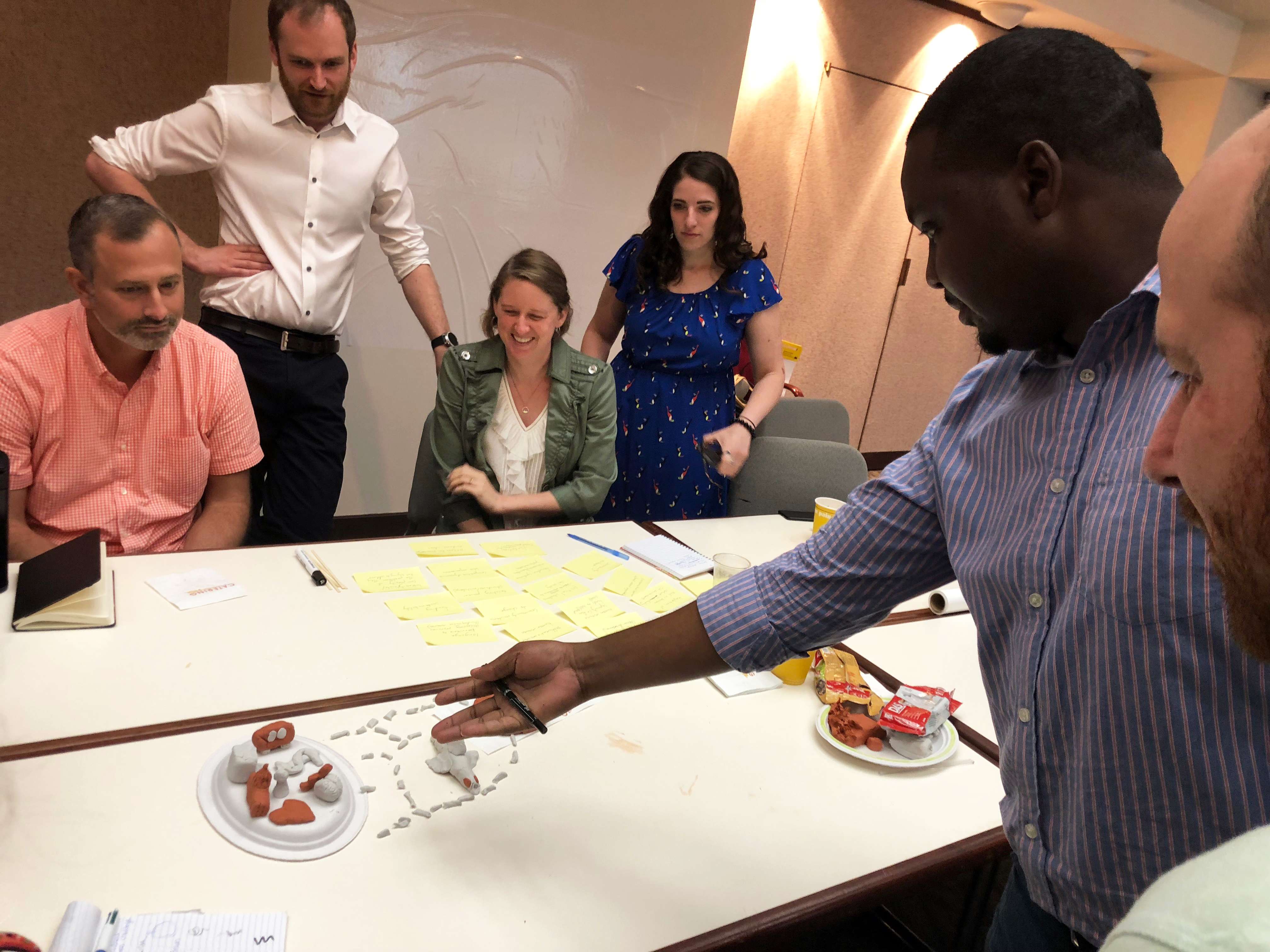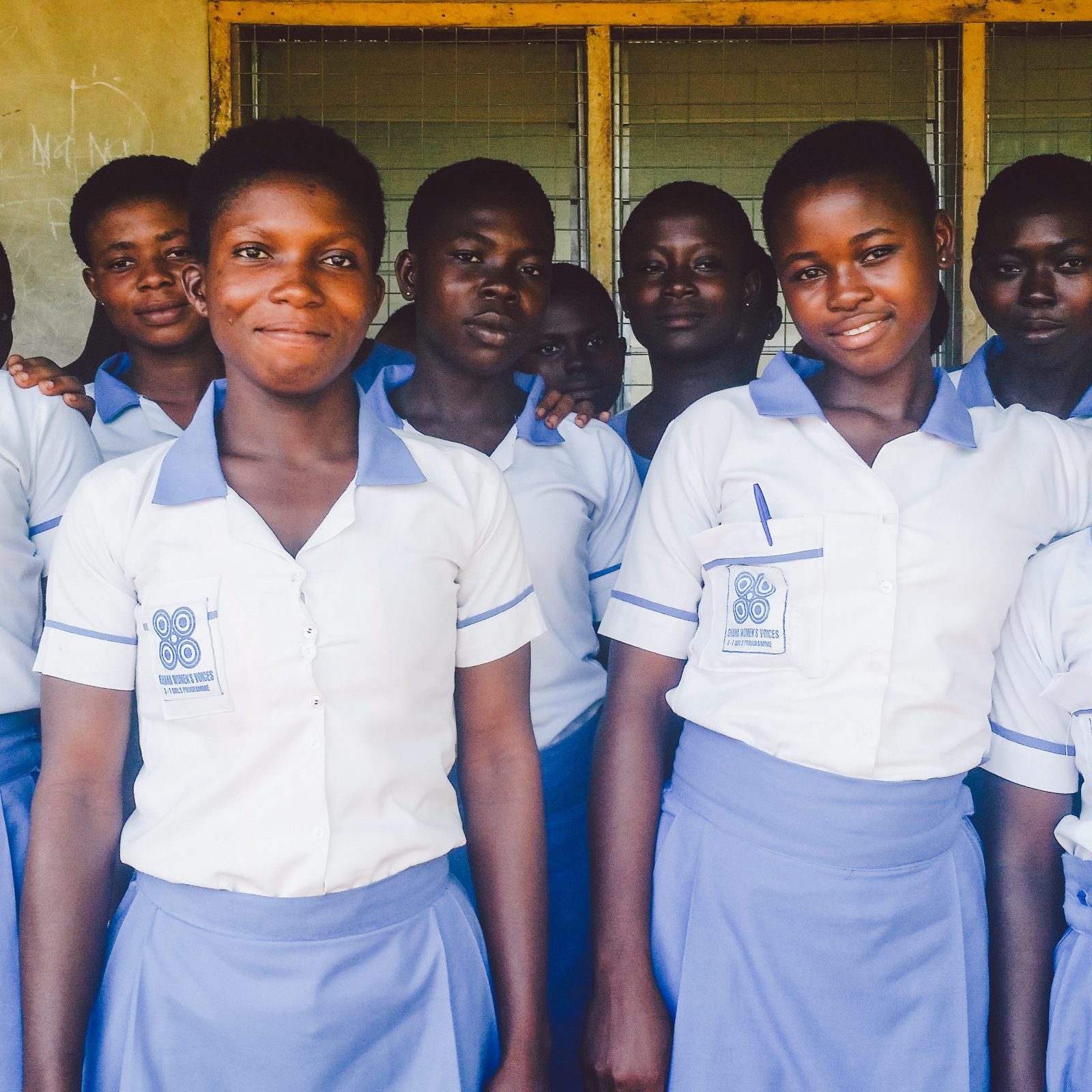We were grateful, inspired, and a bit daunted. While our partners packed their bags, Global Fund for Children’s Capacity Development Advisor, Titos Escueta, and I sat down to reflect on the week that had just passed. We wondered how we could convey the nuances of what had transpired in Uganda and do justice to the bonds of trust that had allowed our partners to engage deeply with us and each other on important issues.
How could we capture the spaces between the lines, where our partners blurred distinctions between the personal and organizational to challenge and inspire each other with care, humor, and passion? How would the creative energy, the personal stories, and the conversations that stretched long beyond the official closing time of each day’s sessions fit into a report?
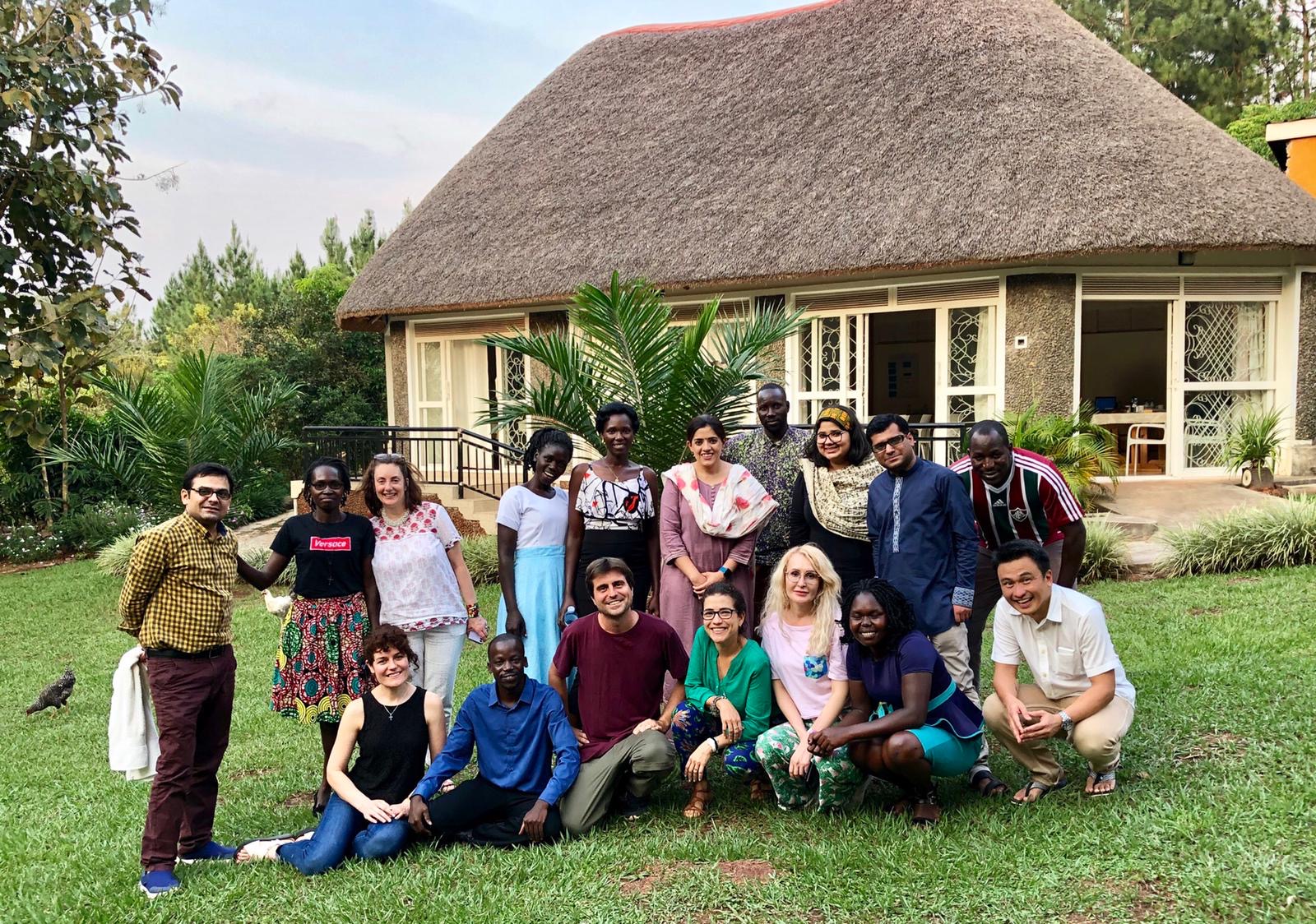
We had come to Uganda for the final convening with our second cohort of partners in GFC’s Step Up program. This initiative creates a space for learning and exchange for a select group of GFC’s longtime partners, exploring topics like adaptability and transformation across an 18-month journey. Collaborating with Titos, facilitator of the program since its inception in 2017, has been a highlight of my tenure at GFC, as we have been able to experiment with how we engage organizations on their change journeys while building close relationships that transcend the bounds of the program.
As we were preparing for this gathering, Titos and I experienced a bit more than the normal worry that precedes any event. The COVID-19 outbreak had affected his home in Hong Kong, and we considered ways that it could disrupt our plans, even as we forged ahead. It was only after returning home that the time with our partners from around the world took on new poignancy, as all retreated into quarantine a few days later. We had not imagined the scope of the crisis, or how this would be the last in-person GFC gathering for some time.
Power of the Circle
As the partners converged in Uganda from South Asia, South America, and Eastern Europe, we wondered how the dynamic might be different from the first convening in Delhi a year ago, especially with new staff members in some organizations, our Hong Kong partner absent due to virus fears, and the addition of our partner from Pakistan. The group had bonded quickly in the energy of Delhi, and we had tried to stay connected across the year.
We started our first official day together on Saturday morning in the gathering space of the Frontier Hotel, pushing aside the “NGO standard” tables and forming a circle of chairs. We aimed to create the conditions to reduce actual and perceived barriers and foster authentic sharing.
“By its simple shape, circle includes everyone without distinction, welcomes and invites all to participate, and creates equality among those gathered. Circle ends our collective and individual silence.” – The Circle Way: A Leader in Every Chair, Christina Baldwin and Ann Linnea
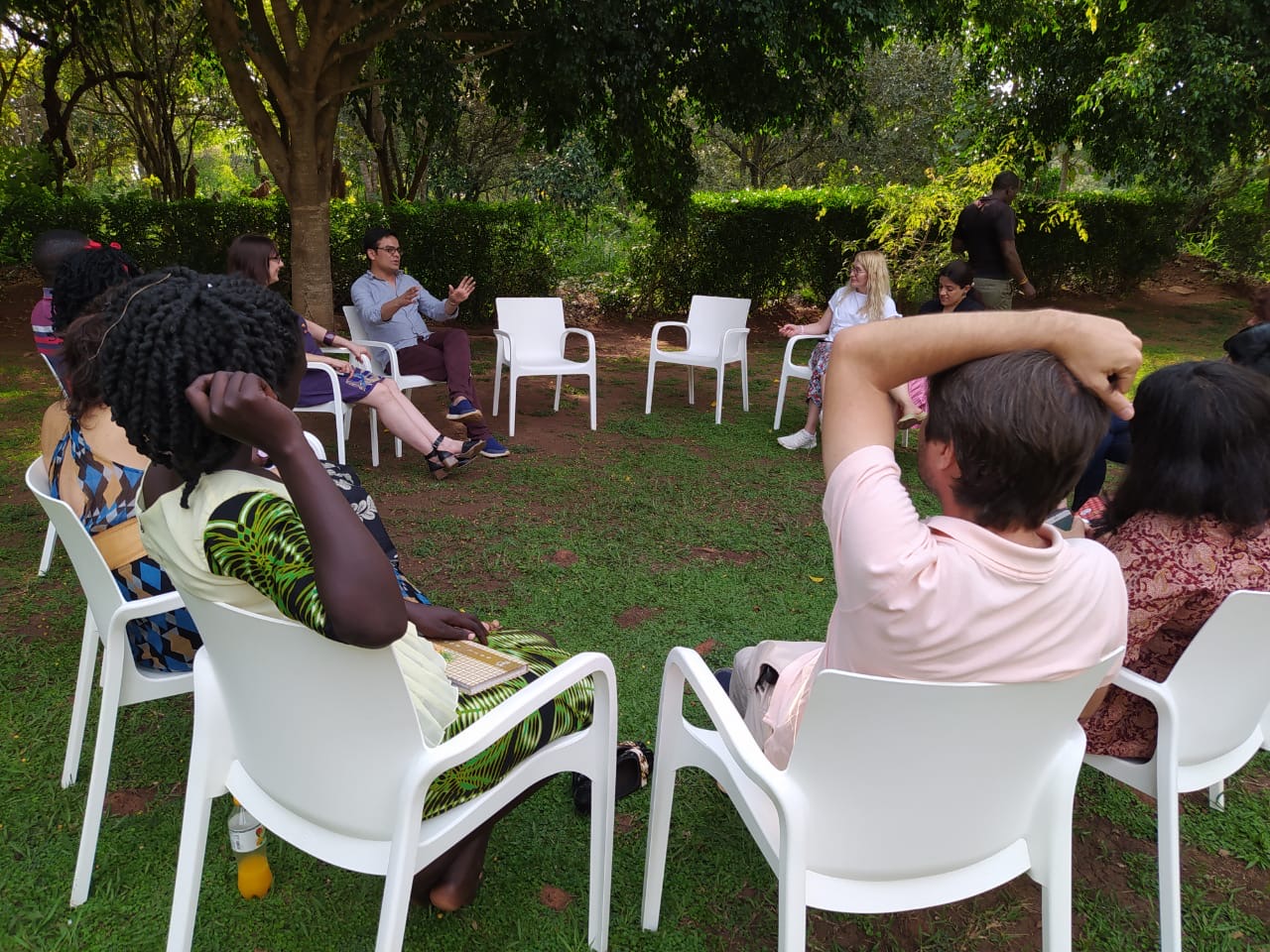
As we opened our circle, we acknowledged the need for this kind of space more than ever. Many of us come from countries where the dominant political message focuses more on separation and othering than on solidarity. Here in Uganda, we committed to a collective space for sharing and learning across difference. While we opened the space, our partners stepped passionately into it. We watched our Pakistani and Indian colleagues build connections, our Brazilian and Ugandan partners colleagues add life to their youth collaboration project launched this year, and all gradually become more comfortable sharing about their lives outside of their professional roles.
Context Matters
As we were choosing the location for the convening, we considered how the context would shape the learning and group dynamic. In the previous year, the intense backdrop of Delhi, combined with hosting the convening in a corporate space and staying in an urban hotel, made the gathering feel more formal and hectic. In contrast, our Uganda partner and host for this convening, Foundation for Inclusive Community Help (FICH) works in rural northern Uganda, the better part of a day’s drive from where we arrived.
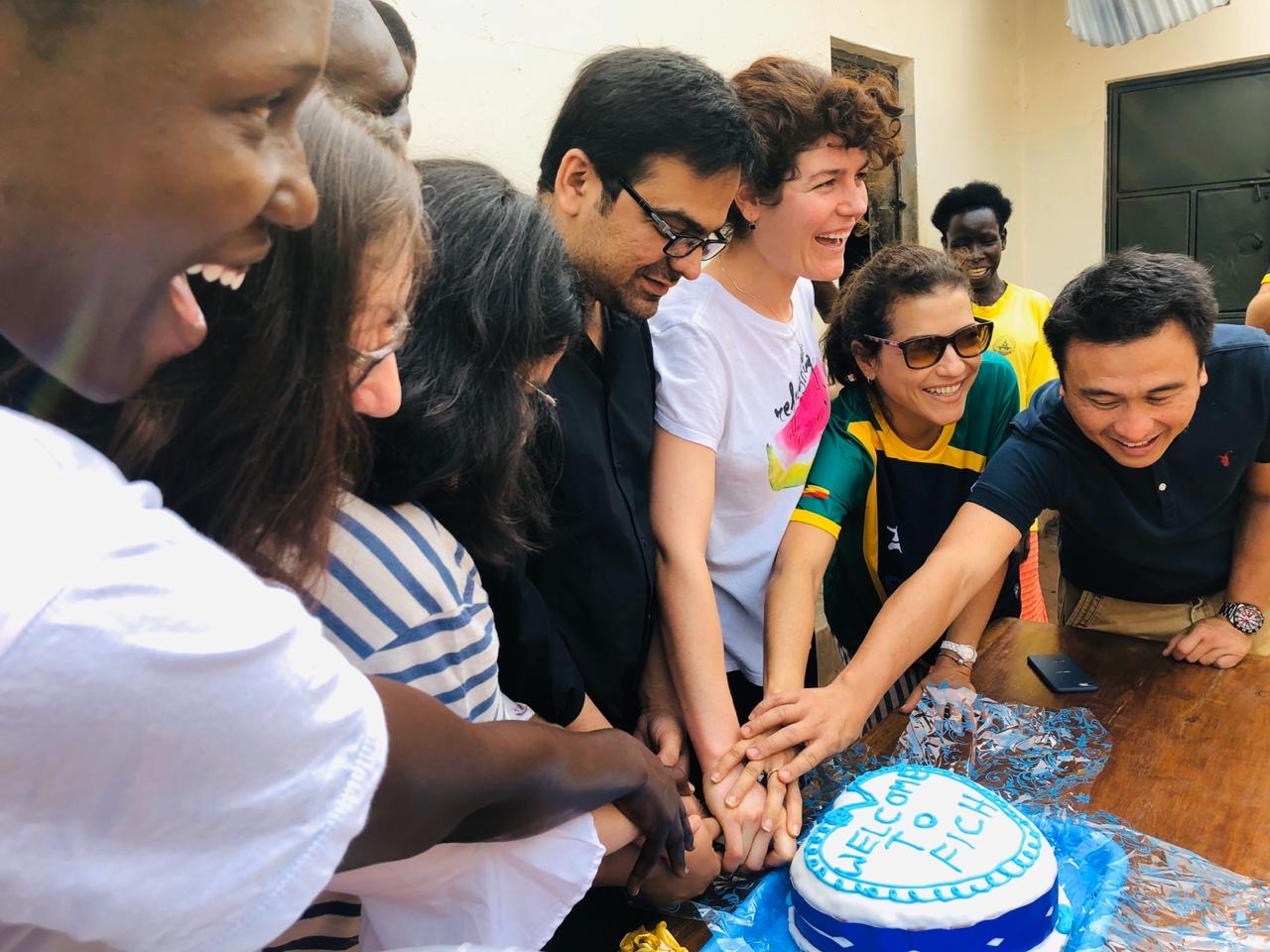
While it would have been logistically easier to hold the convening in the capital, we would have missed the chance to see FICH’s work in action, get a feel for the heart of the country, and experience the inevitable bonding from hours on the road. We chose a homey setting in local nature well outside of town to allow a deeper level of connecting without distractions – a sharp contrast to the previous year in Delhi.
One benefit of holding a convening close to one of our partners is the chance to allow teachings to emerge, which encourage participants to view their own settings in new ways. As most of the cohort members were in Africa for the first time, we devoted some space to exploring perceptions of the continent and Uganda. The group navigated the polarity in their perceptions of a continent with deep cultural and artistic roots, dynamism, and the inspiring legacy of leaders like Nelson Mandela with the clichés of dictatorship, conflict, and deprivation.
FICH’s founder and director, Emmy Zoomlamai, was willing to set the stage for sharing by talking about the connection between his personal narrative and the emergence of FICH. Displaced as a child during northern Uganda’s conflict, he struggled to overcome the situation by the force of his own will and the persistence of his mother, moving to nine schools in nine years as the family shifted ground in search of safety. The organization was born from a belief in the power of individuals to transcend their circumstances and a desire to shift norms to create different realities for children than what he had experienced, especially for girls.
Site Visits as Dialogue
As the group prepared to explore FICH’s work through community visits, we encouraged our partners not to remain spectators but to consider the work through the lens of the themes we were discussing across the week. FICH suggested that we experiment with short, unplanned visits in small groups to homes in the region where FICH operates, in order to understand the dynamics at play both in communities where FICH’s program participants live and in communities FICH has not yet reached.
Our group also visited with girls in one of the high schools where FICH offers life skills programming, noting the sharp contrast in aspirations between the girls they met who were in school and those who were out of school. A partnership between FICH and Onda Solidaria in Brazil, also part of the cohort, brought Onda’s experience with confidence-building through soccer to FICH program participants. FICH and Onda had arranged for the visit to end with a soccer match between our group and the high school students, which helped everyone connect with each other on a different level.
Framing Transformation
In our first convening, we introduced the framework of transformative leadership as a way to look at different dimensions of individual and organizational change and the connections between them. At the start of the convening in Uganda, we invited participants to recall this framework and share changes that had transpired for them as leaders and organizations across the last year. Our partners shared changes such as a recognition of how their own attention to wellbeing affects their teams; greater acceptance of failure; better understanding of when things are “good enough”; learnings on sharing power and leadership on their teams; the value of listening to young people in their programs more; and the expanded awareness that stems from a deepened global perspective through Step Up.
“The basic premise of transformative leadership is that everyone can lead, and that particularly in this transformative moment, everybody contributes to, and in fact co-creates, the world we live in, whether conscious of their agency or not. Transformative leadership invites everybody to ask what kind of a world they are creating through their thoughts, beliefs, actions, and interactions, and to compare that with the kind of world they would like to create, and the kind of person they would like to be.” – Transformative Leadership, Alfonso Montuori and Gabrielle Donnelly
The framework we discussed is transformative as it reflects a primary aim of changing negative power relationships from control and domination toward the ability to act and change the world in positive ways. This framework provided a natural segue to exploring power as one of our key themes of the week.
Why Power?
Talking about power has special meaning for GFC, as we have been engaged in internal discussions across the last several months around the idea of shifting power in philanthropy. We shared our experience of discussing with our staff and peer funders how grantmaking practices and relationships between funders and grantees can either reinforce or challenge imbalances in power, and how we aim to help advance changes in the sector.
We were eager to expand these discussions to encourage our Step Up partners to consider the power dynamics in their internal structures and external relationships. We approached these topics with careful awareness of power dynamics through an experiential, active, and often partner-led methodology.
“Whether concerned with participation and inclusion, realising rights or changing policies, more and more development actors seeking change are also becoming aware of the need to engage with and understand this phenomenon called power.” – Finding the Spaces for Change: A Power Analysis, John Gaventa
Each organization considered expressions of power – including “power to,” “power with,” and “power within” – and what they do well and could do better to foster positive power within their teams and with their constituents and other stakeholders. Areas the group identified as strengths included team-led learning efforts based on interests and skills they wish to enhance and structured pathways to cultivate youth leaders. Setting limits on the notion of perpetual work, and establishing channels to address issues of burnout and mental health were among areas identified for growth.
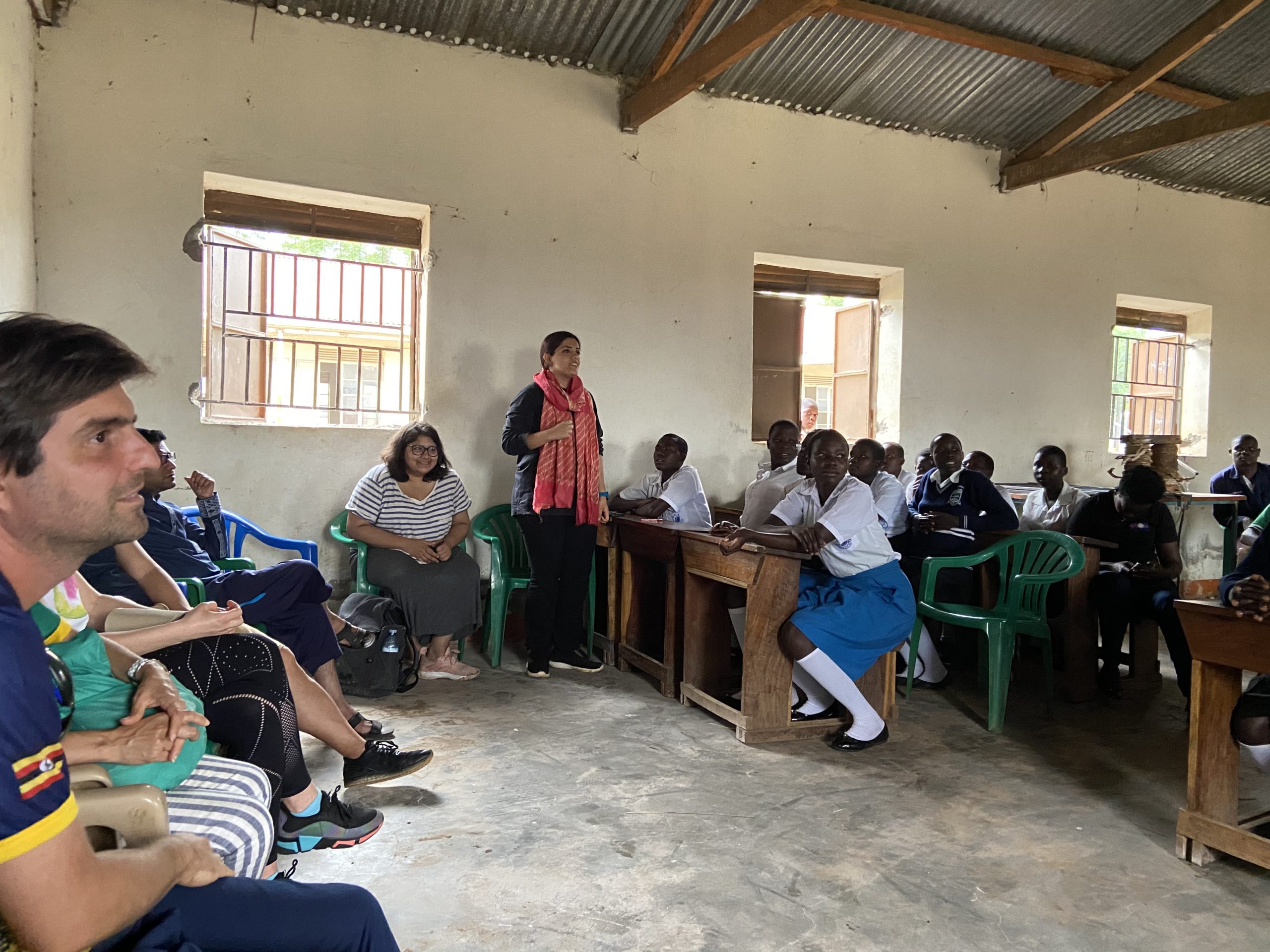
At the end of the week, the cohort members identified empowering personal and organizational practices that they aimed to work on in coming months. These included creating a knowledge hub in a rural community to explore learning and action around community change with different stakeholders; shifting from self-care to wellbeing; reframing an organizational self-evaluation process to reflect harmony with values; creating a platform where girls in school can engage with girls not attending school; and revising strategies for shifting power in communities.
Coming Home to Change
Back at home, as we navigate a shifting world, the Step Up partners are living in the complexity that we talked about in theory during our two convenings. They are “crossing the river by feeling the stones,” as expressed in a Chinese phrase that Titos likes to quote. The cohort is scattered, but the partners are not separate, as they have opted to connect online every other week to support each other through these new dynamics and explore the commitments they surfaced at the convening. Using the foundation of strong relationships built in person, our partners want to explore together power, equity, and gender around the reactions to COVID-19 as they adapt and contribute to collective influence on the practice of funders.
Since our debrief at the close of the convening, Titos and I have come to accept that we cannot truly do justice to the time in Uganda – we can only sketch an outline. As our partners’ journeys of transformation unfold, their words and stories will fill out the portrait and convey the deeper meaning of our time together.
We have summarized a few reflections on our practice that contributed to a powerful experience for all:
Focus on the personal and organizational: Although it seems obvious, it is easy to forget that organizations are made up of people. Social-sector leaders often have a tough time separating themselves from their organizations. At our Step Up convening, we found it was important to create space for participants to reflect on their personal values and journeys and how these affect their organizations. Especially for those in senior leadership roles, having space to connect with others and be open about issues that merge the personal and organizational can be rare and valuable. We also built in plenty of informal time for the group to bond during local travel, meals, and evenings – strengthened by having a residential convening in a rural area with low internet bandwidth and few distractions.
Reflecting on power: Inequities in power are at the root of much of the work that our partners do. At the same time, they rarely carve out space to think deeply about how power operates in their organizations and communities. Our partners found value in reflecting on their own power and on ways to increase positive and decrease negative power in their organizations and external relationships. They challenged themselves to consider empowering individual and organizational practices.
Host as co-learner: GFC’s Step Up program has evolved in tandem with changes in our organization. We have engaged in this program as the host of important conversations where we also reflect, together with our partners, on our own learnings. As we strive to model ways to reduce power imbalances between funders and partners, our willingness to share our own journey, be part of the group, and be vulnerable in the process is one way that we have tried to break down barriers.
Participating is a leadership role: When designing the convening, we invited interested members of the cohort to be part of a planning committee to offer feedback on design. While we had an agenda, it was purposely emergent to reflect the energy and interests of the group. Our local host, FICH, co-created the community and program site visits. During each day of the convening, one organization volunteered to lead morning and afternoon energizers and closing activities, setting the tone for the day and affirming the day’s themes. We also asked some of the participants in advance to prepare short presentations on relevant topics. As a result, the convening had the flavor and influence of multiple voices and styles while staying coherent around a central theme.
Field visits as dialogue: We aimed to avoid hosting a passive field visit and to instead view the work of our partner in Uganda with the lens of the themes we were discussing. We created opportunities for the team to reflect critically on their observations and the environment and carved out ample time for debriefing after the visits. We created space for interaction where the members of the cohort could connect with community members as engaged visitors and not spectators.
Wellbeing as a holistic approach: The theme of wellbeing carried across both convenings of the cohort. We strived to discuss wellbeing as not only a set of practices for an individual or an organization but a continuous process that helps both individuals and organizations reach their highest potential. We also aimed to embed wellbeing in the conduct of the convening itself and recognized the critical importance of paying close attention to group dynamics and reactions as we opened spaces for sharing.
